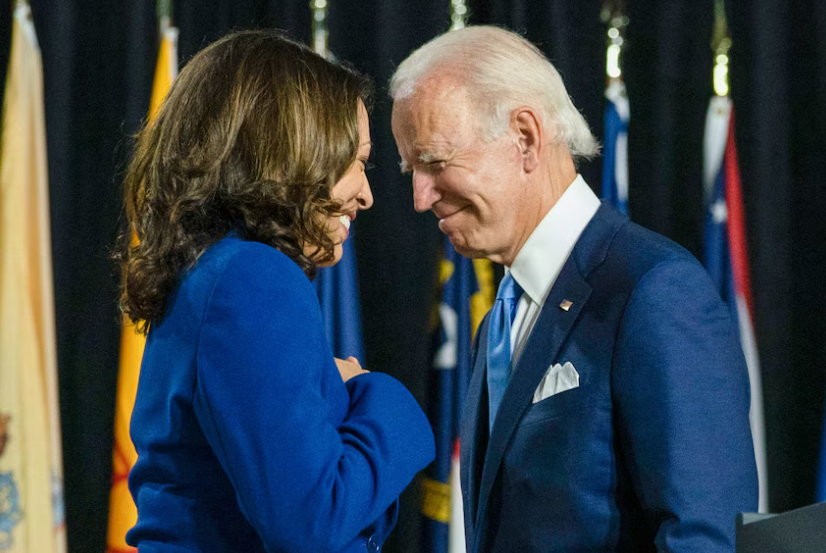Today, President Joe Biden, aged 81, announced he would not seek re-election, while remaining in office for the remainder of his term. Biden’s unexpected decision came after mounting pressure from Democratic lawmakers and donors concerned about his ability to endure another four years in office. Instead, he endorsed Vice President Kamala Harris as his successor.
“My very first decision as the party nominee in 2020 was to pick Kamala Harris as my Vice President. And it’s been the best decision I’ve made,” Biden declared in a post on X (formerly Twitter). “Today, I want to offer my full support and endorsement for Kamala to be the nominee of our party this year.”
Harris, who has served as vice president since 2021, now stands at a critical juncture. Her potential candidacy represents a significant gamble for the Democratic Party, given her identity as a Black woman and the historical challenges of racism and sexism in American politics. The U.S. has only elected one Black president, Barack Obama, and no woman has ever ascended to the highest office.
LaTosha Brown, a political strategist and co-founder of the Black Voters Matter Fund, acknowledges the hurdles Harris faces. “Will her race and gender be an issue? Absolutely,” she said. Despite these challenges, many Democrats are hopeful about Harris’ chances. At 59, she is two decades younger than Trump and a prominent advocate for abortion rights, an issue resonating with younger voters and the party’s progressive base.
Harris’s endorsement has energised segments of the Democratic base, with supporters arguing that her candidacy could consolidate Black support and engage younger voters. Her sharp debating skills are seen as a significant asset in a potential face-off with former President Donald Trump and his running mate, Senator J.D. Vance. “She is reflective of America’s now and future,” said Brown, contrasting Harris with the two white men on the Republican ticket.
However, Harris’s path to the nomination is not without its difficulties. Her early years as vice president were marked by staff turnover and slow progress on key issues like voting rights and immigration. Furthermore, her short-lived 2020 presidential campaign raises concerns among some Democrats about her ability to lead a successful national campaign.
Despite these reservations, recent polls show Harris in a competitive position. A Reuters/Ipsos poll conducted in mid-July indicated a tie between Harris and Trump, with each receiving 44 percent support. Harris’s approval ratings, while not overwhelmingly positive, are slightly higher than Biden’s.
Representative Alexandria Ocasio-Cortez, a Biden supporter, highlighted the lack of consensus among Democrats about Harris’s candidacy. “There’s no safe option,” she noted on Instagram. The Democratic Party has other potential candidates, including California Governor Gavin Newsom, Michigan Governor Gretchen Whitmer, and Transportation Secretary Pete Buttigieg. These figures have been floated as possible alternatives should Harris’s candidacy falter.
Former Harris aide Jamal Simmons emphasized the dual nature of Harris’s identity in American politics. “America has a history of racism, sexism, so I’m sure that will factor into this conversation, factor into her campaign,” he said. However, he also pointed out that Harris’s race and gender could mobilize Black voters and women, potentially offsetting these challenges.
As the Democratic Party looks to the future, the prospect of an open convention looms. If Harris fails to secure a majority of delegates, the party could see a contested convention, a scenario not witnessed since 1968. In such a case, the influence of superdelegates—senior Democratic leaders—could prove decisive.
Ultimately, if Kamala Harris becomes the Democratic nominee, she will face the monumental task of uniting the party and securing a running mate who can bolster her campaign. Whether the Democratic gamble on Harris will pay off remains uncertain, but one thing is clear: the 2024 election will be a pivotal moment in American political history.





